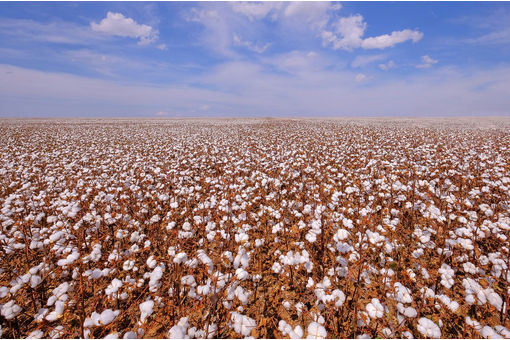Interviews
Suspend registration of new cotton export contracts - TEA
09 Nov '09
4 min read
TEA whole heartedly thank our dynamic Hon'ble Union Textile Minister for relentlessly taking efforts through various measures to bring back the textile industry into the main stream of Indian economy and are also happy to note the Hon'ble Union Textile Minister statement that Rs.1,884 crore will be received for reimbursement of interest subsidy under TUF scheme up to 31st December 2009 and this envisaged amount will be highly beneficial to the just recovering textile industry.
You are aware that the major raw material cotton plays a major role in the textile industry, it accounts for more than 60% of our fibre consumption and we are the second largest producer, consumer and exporter of cotton. Tirupur, the major cotton knitwear producer and exporter of India, requires the cotton yarn price at competitive rate otherwise it is not possible to compete with China, Bangladesh and Vietnam etc.
During cotton year 2008-09 (October-September), the Government increased Minimum Support Prices for cotton by around 43% compared to the previous year and this led to substantial increase in cotton prices last year. The same MSPs have continued for the current year. With increase in cotton consumption and apprehensions of a lower crop in the country because of the vagaries of the monsoon, cotton prices have increased substantially during the last few weeks. For Sankar-6 which is the standard Indian cotton, the price is around Rs.25000/- per candy on spot basis at present which is more than 10% above the price that prevailed one month back.
The unhealthy increase in domestic cotton prices has resulted largely from speculation by international cotton traders who have cheap capital available from global sources and therefore have an advantage over Indian mills and even Indian traders. There are reports that nearly 20 lakh bales of cotton has already been bought by traders for exports pushing up domestic cotton prices in the process. Operation of Minimum Support Prices ensures that cotton farmers get remunerative prices for their produce. Increase of cotton prices in the market through speculation basically helps only traders at the cost of both the farmers and the textile industry.
November to March is the most crucial period for our cotton economy since most of the best quality cotton produced in the country comes to the market during this period. By cornering a significant portion of this cotton for export, the traders are depriving the domestic industry the advantage of our cotton and transferring this advantage to our major competing countries like China, Pakistan and Bangladesh which are the major importers of our cotton. As the quality is a main determining factor to sustain in the global market, any fall in cotton quality will have a detrimental effect on garment exports from Tirupur and ultimately lead the buyers to our competing countries.
Cotton Advisory Board(CAB) constituted by Government had estimated cotton production during 2009-10 (October – September) at 305 lakh bales. After this estimate was made, there were
You are aware that the major raw material cotton plays a major role in the textile industry, it accounts for more than 60% of our fibre consumption and we are the second largest producer, consumer and exporter of cotton. Tirupur, the major cotton knitwear producer and exporter of India, requires the cotton yarn price at competitive rate otherwise it is not possible to compete with China, Bangladesh and Vietnam etc.
During cotton year 2008-09 (October-September), the Government increased Minimum Support Prices for cotton by around 43% compared to the previous year and this led to substantial increase in cotton prices last year. The same MSPs have continued for the current year. With increase in cotton consumption and apprehensions of a lower crop in the country because of the vagaries of the monsoon, cotton prices have increased substantially during the last few weeks. For Sankar-6 which is the standard Indian cotton, the price is around Rs.25000/- per candy on spot basis at present which is more than 10% above the price that prevailed one month back.
The unhealthy increase in domestic cotton prices has resulted largely from speculation by international cotton traders who have cheap capital available from global sources and therefore have an advantage over Indian mills and even Indian traders. There are reports that nearly 20 lakh bales of cotton has already been bought by traders for exports pushing up domestic cotton prices in the process. Operation of Minimum Support Prices ensures that cotton farmers get remunerative prices for their produce. Increase of cotton prices in the market through speculation basically helps only traders at the cost of both the farmers and the textile industry.
November to March is the most crucial period for our cotton economy since most of the best quality cotton produced in the country comes to the market during this period. By cornering a significant portion of this cotton for export, the traders are depriving the domestic industry the advantage of our cotton and transferring this advantage to our major competing countries like China, Pakistan and Bangladesh which are the major importers of our cotton. As the quality is a main determining factor to sustain in the global market, any fall in cotton quality will have a detrimental effect on garment exports from Tirupur and ultimately lead the buyers to our competing countries.
Cotton Advisory Board(CAB) constituted by Government had estimated cotton production during 2009-10 (October – September) at 305 lakh bales. After this estimate was made, there were
Popular News
Leave your Comments
Editor’s Pick
Yohan Lawrence
Joint Apparel Association Forum (JAAFSL)
Ata Turgutalp
Eliar Elektronik San. A.S.
Daniela Brunner
Label - Guilia & Romeo
































-Ltd..jpg?tr=w-120,h-60,c-at_max,cm-pad_resize,bg-ffffff)





.jpg?tr=w-120,h-60,c-at_max,cm-pad_resize,bg-ffffff)
.jpg?tr=w-120,h-60,c-at_max,cm-pad_resize,bg-ffffff)






